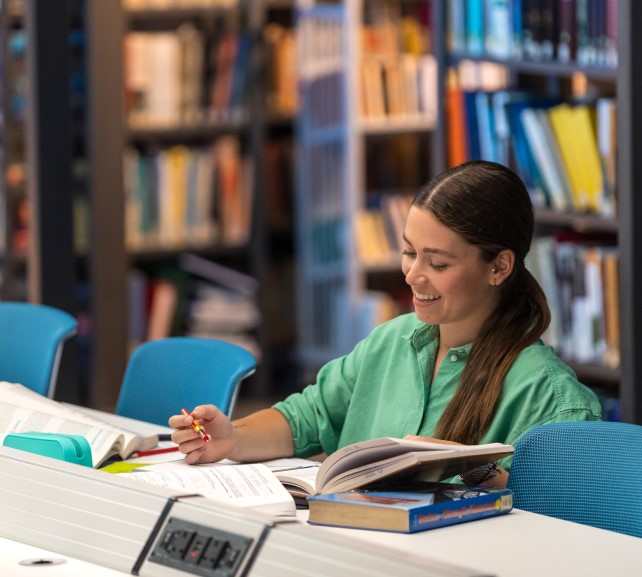PROGRAM DETAILS
Duration18 months (full time)
Fees
€4,900 for whole program
LanguageGreek
CampusN/A
Graduates of the program will have acquired the skills that contribute to the constructive coexistence within a multicultural society by exploiting the diversity of cultures and preventing the formation of stereotypes and prejudices against individuals and cultures by overcoming any form of ethnocentric treatment. All this will be achieved through an educational process that gives substance to human rights by promoting understanding and cooperation between peoples, with the ultimate goal of leading societies to progress and peace. At the same time, regarding the teaching of Greek as a 2nd / foreign language, it is sought, that with the completion of the program, the participants will have acquired the following:
1. At the level of knowledge: acquisition of knowledge of the peculiarities of Greek and understanding of its basic teaching models,
2. At the level of abilities / skills: ability to adopt and apply an effective teaching model and ability to teach Greek to non-native speakers and to members of the Greek community everywhere on earth, and
3. At the level of values: adopting a culture of equal access to education and without discrimination or restrictions learning Greek to foreign language students and Greeks and Greek Cypriots of the Diaspora.
An undergraduate degree from a recognized university or the equivalent international qualification or an acceptable professional qualification is considered the main academic requirement, in the fields of Education, Philology, Philosophy, Psychology and Social Work.
Additionally, candidates must demonstrate knowledge of Greek and English (Β2-C1) (language proficiency level certificates may include: TOEFL, IELTS, GCSE, IGCSE, and Cambridge Certificate of Proficiency in English or equivalent, and for Greek the C1 Level of the European Certification of the Greek Centr of Greek Language).
Prospective students are expected to submit their application and all related documents, such as copies of their degrees, transcripts, one letter of recommendation of professors or supervisors in the workplace, a name/surname and contact information of professors or supervisors in the workplace that may be asked to provide a recommendation, and a research interest report. Where the Program Committee deems it necessary, the candidates may be asked for an interview meeting.
By the expiry of the application deadline for admission to the program, the Program’s Coordinators will evaluate prospective students based on specific criteria, such as academic records, recommendation letters, digital literacy, research interests, interview, work experience, knowledge of Greek and/or English, etc. The committee decisions are announced by electronic mail or otherwise to all candidates.
Transfer of credits from other academic institutions complies with the regulations of the University for transfer students and recognition of previous studies. There are also special regulations and procedures for the enrolment of graduates into professional associations and recognition of degrees and higher education qualifications as set by KYSATS and DOATAP (Hellenic NARIC).
General Criteria for Distance Learning Program
All Distance Learning Programmes are offered using E-Learning methods. Therefore, students applying to enter DL Programmes, additionally to the academic requirements of each program, must have a good level of digital literacy:
The list of prerequisite digital literacy and equipment that the student should have available in order to participate and be an active member of the program include:
1. Access to reliable broadband internet
2. Computer with camera and microphone capacity
3. Smartphone
4. Ability to send and receive emails and files
5. Ability to operate within a web digital environment such as the learning platform
6. Ability to manage word processing, presentation, and other basic office application functions.
Students are eligible for graduation after successfully completing 90 ECTS credits in the courses listed in the Program Structure.
Furthermore, a student can graduate only if their CGPA is greater or equal to 5.00 out of 10.00.
Graduating students with a CGPA less than 5.00 might have to take extra courses or repeat a number of courses in order to improve their grades.
Access to Further Studies
The graduates of the Program have access to doctoral programmes (3rd Cycle) in disciplines related with Education.
Module Group
ECTS
The student must successfully complete 40 ECTS, from the following list of modules:
| No. | Code | Name | ECTS | Hours / week |
|---|---|---|---|---|
| 1 | DLINTER501 | INTERCULTURALISM AND EDUCATION/THE PEDAGOGICAL AND SOCIAL DIMENSION | 10 | 3 |
| 2 | DLINTER502 | BILINGUALISM AND BILINGUAL EDUCATION -TEACHING METHODOLOGY OF GREEK AS A 2ND / FOREIGN LANGUAGE | 10 | 3 |
| 3 | DLINTER503 | INTERCULTURAL THEORY AND PRAXIS | 10 | 3 |
| 4 | DLINTER504 | CURRICULA AND TEACHING GREEK AS A SECOND/ FOREIGN LANGUAGE | 10 | 3 |
The student must successfully complete 20 ECTS, from the following list of modules:
| No. | Code | Name | ECTS | Hours / week |
|---|---|---|---|---|
| 1 | DLINTER505 | DEMOCRACY, EQUITY, AND MULTICULTURAL EDUCATION | 10 | 3 |
| 2 | DLINTER506 | NATIONAL AND EUROPEAN POLICIES FOR THE INTEGRATION OF IMMIGRANTS AND REFUGEES | 10 | 3 |
| 3 | DLINTER507 | IDENTITIES AND GREEK LANGUAGE IN DIASPORA | 10 | 3 |
| 4 | DLINTER508 | DEVELOPMENT OF LANGUAGE SKILLS AND ORAL AND WRITTEN SPEECH STRATEGIES | 10 | 3 |
| 5 | DLINTER509 | ASSESSMENT: VERIFICATION AND EVALUATION CRITERIA FOR GREEK AS A 2ND / FOREIGN LANGUAGE | 10 | 3 |
| 6 | DLINTER510 | APPLICATIONS OF LITERATURE AND CREATIVE WRITING | 10 | 3 |
The student must successfully complete 30 ECTS, from the following list of modules:
| No. | Code | Name | ECTS | Hours / week |
|---|---|---|---|---|
| 1 | DLINTER511 | MASTER THESIS I - RESEARCH METHODOLOGY AND PROPOSAL PREPARATION | 10 | 3 |
| 2 | DLINTER512 | MASTER THESIS II – PROPOSAL IMPLEMENTATION AND PRESENTATION | 20 | 3 |
Total
90
Semesters
ECTS
| No. | Code | Name | ECTS |
|---|---|---|---|
| 1 | DLINTER501 | INTERCULTURALISM AND EDUCATION/THE PEDAGOGICAL AND SOCIAL DIMENSION | 10 |
| 2 | DLINTER502 | BILINGUALISM AND BILINGUAL EDUCATION -TEACHING METHODOLOGY OF GREEK AS A 2ND / FOREIGN LANGUAGE | 10 |
| 3 | DLINTER503 | INTERCULTURAL THEORY AND PRAXIS | 10 |
| TOTAL | 30 |
| No. | Code | Name | ECTS |
|---|---|---|---|
| 1 | DLINTER504 | CURRICULA AND TEACHING GREEK AS A SECOND/ FOREIGN LANGUAGE | 10 |
| 2 | DLINTER511 | MASTER THESIS I - RESEARCH METHODOLOGY AND PROPOSAL PREPARATION | 10 |
| 3 | ELECTIVE COURSE | 10 | |
| TOTAL | 30 |
| No. | Code | Name | ECTS |
|---|---|---|---|
| 1 | DLINTER512 | MASTER THESIS II – PROPOSAL IMPLEMENTATION AND PRESENTATION | 20 |
| 2 | ELECTIVE COURSE | 10 | |
| TOTAL | 30 |
The delivery of the program of study is supported by the following members of staff:
| Rank | Name |
|---|---|
| Associate Professor | Dr. Nicoletta Christodoulou |
| Lecturer - Programme Coordinator | Dr. Nansia Kyriacou |
| Collaborating Acad. Staff | Dr. Sofia Anastasiadou |
| Collaborating Acad. Staff | Dr. Anna Chatzipanagiotidou |
| Collaborating Acad. Staff | Dr. Nino Lukasvilli |
| Collaborating Acad. Staff | Dr. Vasiliki Pliogkou |
| Collaborating Acad. Staff | Dr. Evanthia Tsaliki |
| Collaborating Acad. Staff | Dr. Georgios Tzartzas |









